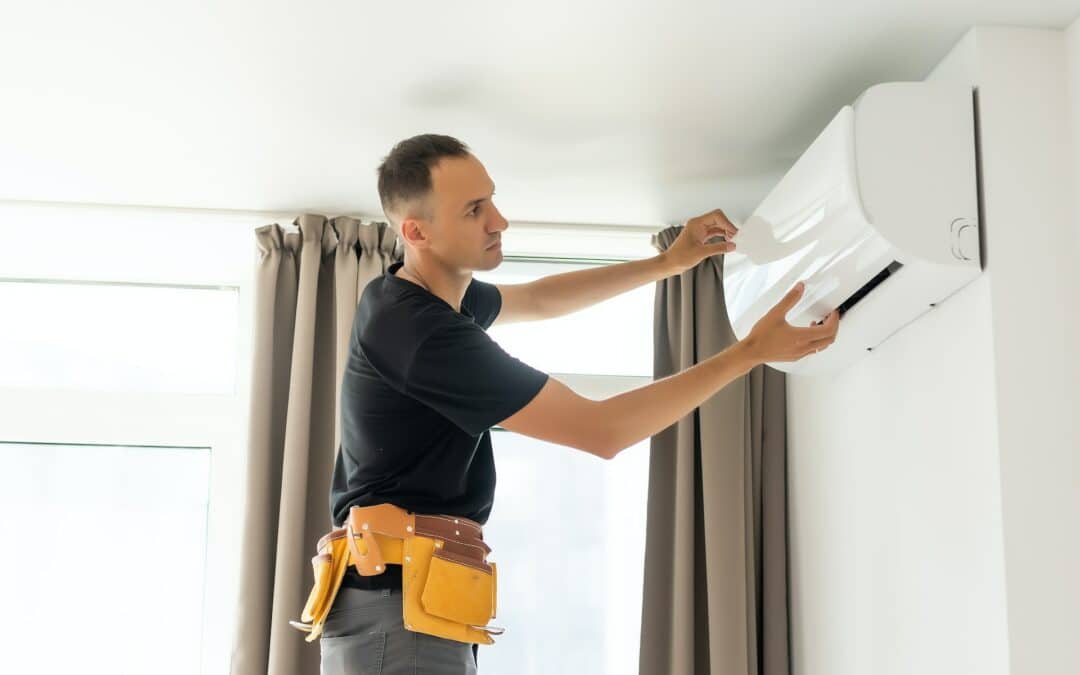While we often focus on maintaining comfortable temperatures in our homes, indoor air quality (IAQ) is an equally important aspect of whole-home comfort that can impact our health and well-being. Considering that indoor air can be up to five times more polluted than outdoor air, according to the EPA, it’s essential to prioritize creating a clean and healthy living environment.
Thompson Heating & Cooling, a dedicated provider of whole-home comfort services in La Grange, Louisville, and the surrounding areas since 2003, understands the importance of indoor air quality and offers expert solutions using top-quality products from brands like Ruud, Mitsubishi, ClimateMaster, and Nest.
Poor indoor air quality can result from various factors, including poor ventilation, high humidity levels, and allergens and pollutants. These issues can lead to health concerns such as allergies, asthma, and respiratory problems and exacerbate existing conditions.
To help you create a healthier home environment, we have developed a comprehensive guide that covers the following aspects of indoor air quality:
- Common Sources of Indoor Air Pollutants: Understand the various sources of indoor air contaminants, from everyday household items to outdoor pollutants that can enter your home.
- Health Effects of Poor Indoor Air Quality: Learn about the potential health risks and symptoms associated with poor indoor air quality and how they can vary based on individual sensitivities.
- Tips for Improving Indoor Air Quality: Discover expert tips and advice on enhancing your home’s air quality, from regular maintenance and cleaning to investing in air purification systems.
- How HVAC Systems Play a Role in IAQ: Gain insight into the role your heating and cooling system plays in maintaining indoor air quality and how regular maintenance can help improve the air you breathe.
At Thompson Heating & Cooling, our goal is to help you create a comfortable and healthy living environment through our expert services and top-quality products. This guide will provide you with valuable information and practical tips to understand the importance of indoor air quality and take steps to improve it within your home.
The Importance of Indoor Air Quality: Tips for a Healthier Home Environment
Common Sources of Indoor Air Pollutants
Several potential sources contribute to indoor air pollution, ranging from basic household activities to the presence of outdoor pollutants that infiltrate your home environment. Some of the most common sources include:
- Combustion Sources: Gas stoves, fireplaces, furnaces, and tobacco products produce combustion pollutants, such as carbon monoxide and nitrogen dioxide, which can negatively impact IAQ.
- Volatile Organic Compounds (VOCs): Found in numerous household products like cleaning agents, paint, and adhesives, VOCs can evaporate into the air and cause health issues when inhaled.
- Biological Contaminants: Mold, mildew, pet dander, dust mites, and pollen are biological contaminants that can trigger allergies and respiratory problems.
- Outdoor Pollutants: Outdoor air quality plays a role in your indoor environment, as pollutants like vehicle emissions, industrial emissions, and pollen can enter your home through ventilation systems and open windows or doors.
Health Effects of Poor Indoor Air Quality
Poor indoor air quality can lead to various short-term and long-term health effects, depending on an individual’s sensitivity and the level of exposure. Some health issues related to poor IAQ include:
- Allergic Reactions: Contaminants like pollen, pet dander, and dust mites can trigger allergy symptoms, which can range from mild irritation to severe respiratory distress.
- Asthma Symptoms: Poor IAQ can exacerbate asthma symptoms or cause asthma attacks for those with existing conditions.
- Respiratory Infections: Contaminants like mold and bacteria can lead to respiratory infections, especially for individuals with compromised immune systems.
- Fatigue, Headaches, and Dizziness: Exposure to VOCs and other chemical pollutants can cause various health issues, including fatigue, headaches, and dizziness.
It’s essential to monitor your indoor air quality and address potential pollutants before they cause long-term health problems.
Tips for Improving Indoor Air Quality
Ensuring the health and comfort of your home environment starts with improving indoor air quality. Here are some expert tips to help you make a positive impact:
- Ensure Proper Ventilation: Promote adequate airflow in your home by using exhaust fans in kitchens and bathrooms, periodically opening windows, and maintaining a clean and well-functioning HVAC system.
- Regularly Replace Air Filters: Replace air filters in your HVAC system every 30-90 days to prevent the spread of pollutants and keep your system running efficiently. Opt for high-quality filters to capture more contaminants.
- Control Humidity Levels: High humidity levels can promote mold and mildew growth. Maintain a humidity level of 30-50% using dehumidifiers or ventilation adjustments.
- Keep Your Home Clean: Regular cleaning can minimize exposure to allergens like dust and pet dander. Vacuum carpets, mop hard surfaces, and wash bed linens frequently.
- Limit VOC Exposure: Choose low-VOC or VOC-free products when possible. Store chemicals like paints and cleaning supplies in well-ventilated areas to minimize indoor exposure.
- Invest in Air Purification Systems: Consider installing air purifiers or upgrading your HVAC system with high-quality filtration options to reduce indoor pollutants.
How HVAC Systems Play a Role in IAQ
Your heating and cooling system plays a crucial role in maintaining indoor air quality by:
- Filtering the air: Air filters capture particles like dust, pollen, and pet dander, helping to reduce their levels in your home’s air.
- Removing excess moisture: Air conditioning systems and dehumidifiers help control humidity levels, reducing the risk of mold and mildew growth.
- Ensuring proper ventilation: Well-maintained HVAC systems promote adequate airflow and remove stale, contaminated air from your home.
Regular maintenance of your HVAC system is essential to keep your system running efficiently and maintaining optimal indoor air quality.
Conclusion
Indoor air quality is a critical aspect of whole-home comfort and affects our health and well-being. Understanding common sources of indoor air pollutants and adopting measures to improve IAQ in our homes can mitigate the risks associated with poor air quality and create a healthier living environment.
Thompson Heating & Cooling is committed to helping homeowners achieve exceptional indoor air quality through expert HVAC services and top-quality products, ensuring a comfortable and healthy home for all.






